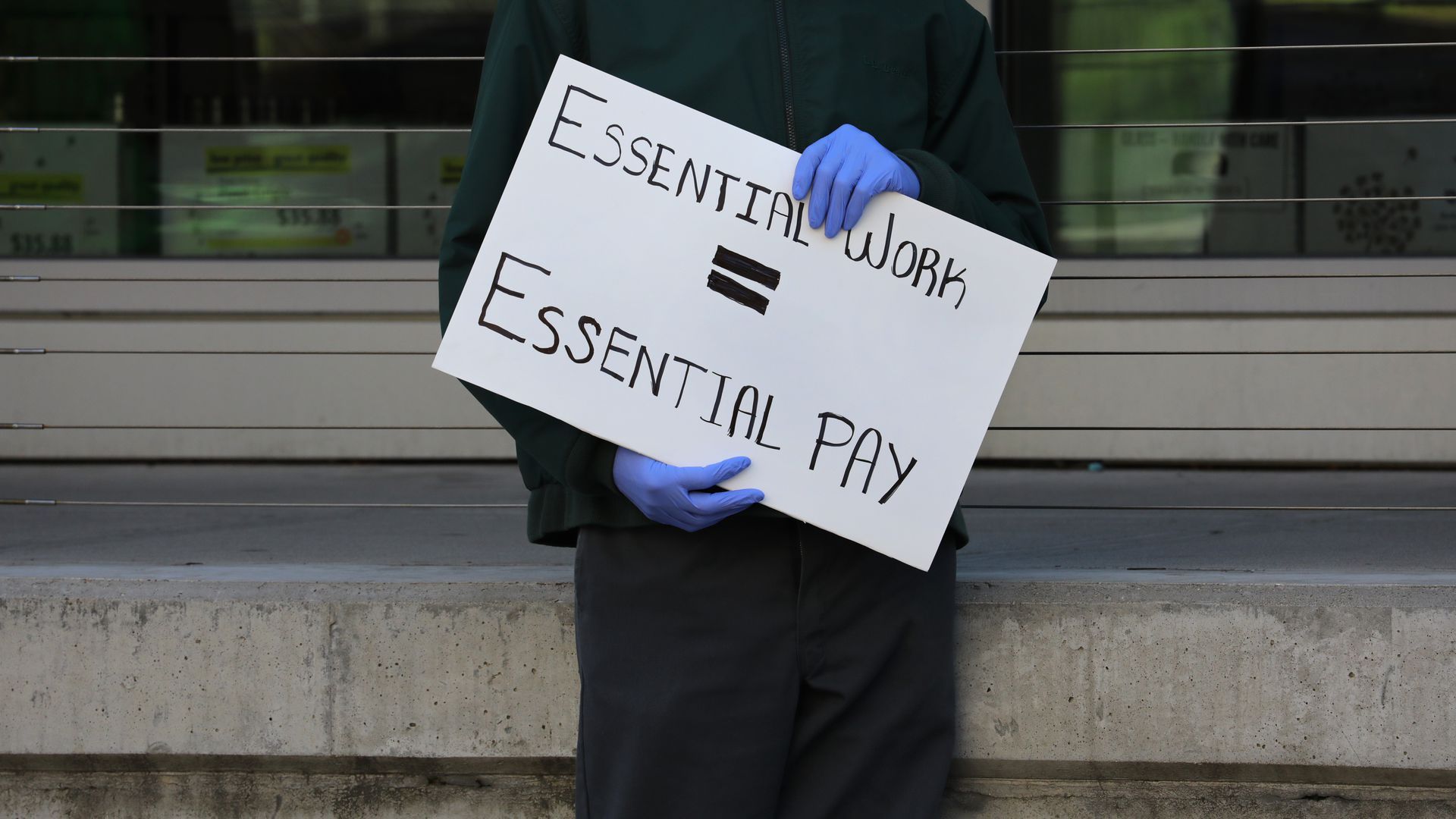May 12, 2020 - Economy
Breaking down hazard pay
Add Axios as your preferred source to
see more of our stories on Google.

Protesting for higher pay outside of a Boston Whole Foods. Photo: Pat Greenhouse/The Boston Globe via Getty Images
Add Axios as your preferred source to
see more of our stories on Google.

Protesting for higher pay outside of a Boston Whole Foods. Photo: Pat Greenhouse/The Boston Globe via Getty Images